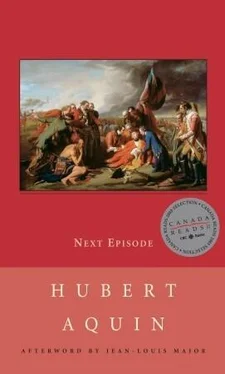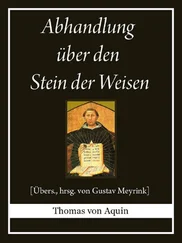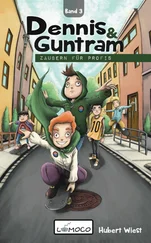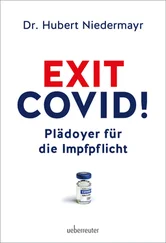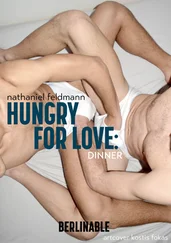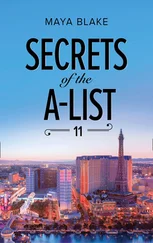Hubert Aquin - Next Episode
Здесь есть возможность читать онлайн «Hubert Aquin - Next Episode» весь текст электронной книги совершенно бесплатно (целиком полную версию без сокращений). В некоторых случаях можно слушать аудио, скачать через торрент в формате fb2 и присутствует краткое содержание. Год выпуска: 2001, ISBN: 2001, Издательство: McClelland & Stewart, Жанр: Современная проза, на английском языке. Описание произведения, (предисловие) а так же отзывы посетителей доступны на портале библиотеки ЛибКат.
- Название:Next Episode
- Автор:
- Издательство:McClelland & Stewart
- Жанр:
- Год:2001
- ISBN:9781551996240
- Рейтинг книги:3 / 5. Голосов: 1
-
Избранное:Добавить в избранное
- Отзывы:
-
Ваша оценка:
- 60
- 1
- 2
- 3
- 4
- 5
Next Episode: краткое содержание, описание и аннотация
Предлагаем к чтению аннотацию, описание, краткое содержание или предисловие (зависит от того, что написал сам автор книги «Next Episode»). Если вы не нашли необходимую информацию о книге — напишите в комментариях, мы постараемся отыскать её.
is a disturbing and yet deeply moving novel of dissent and distress. As he awaits trial, a young separatist writes an espionage story in the psychiatric ward of the Montreal prison where he has been detained. Sheila Fischman’s bold new translation captures the pulsating life of Aquin’s complex exploration of the political realities of contemporary Quebec.
Next Episode — читать онлайн бесплатно полную книгу (весь текст) целиком
Ниже представлен текст книги, разбитый по страницам. Система сохранения места последней прочитанной страницы, позволяет с удобством читать онлайн бесплатно книгу «Next Episode», без необходимости каждый раз заново искать на чём Вы остановились. Поставьте закладку, и сможете в любой момент перейти на страницу, на которой закончили чтение.
Интервал:
Закладка:
Daylight is fading. The tall trees that line the Institute grounds are bombarded by light. Never have they appeared so cruel to me and never have I felt so much like a prisoner. Troubled, too, by what I’m writing, I’m very weary and tempted to give in to inertia the way one gives in to a fascination. Why should I go on writing and what shall I say? Why draw curves on paper when I long to go out, to stroll, to run towards the woman I love, to abolish myself in her and sweep her away with me into my resurrection and towards death? No, I no longer know why I’m writing this puzzle while I suffer and the hydrous vise is tightening over my temples till it crushes my few remaining memories. Something inside me is threatening to explode. There are more and more cracking sounds, foreshadowing a seismic event that my scattered activities can no longer keep at bay. Two or three censored novels can’t distract me from the free world I see out my window, from which I’m excluded. Volume IX of the complete works of Balzac is particularly discouraging. “In Paris under the Empire thirteen men met, all struck by the same sentiment, all energetic enough to follow the same line of thinking, political enough to conceal the sacred bonds that united them …” I stop here. The opening sentence of the Story of the Thirteen slays me; that dazzling beginning makes me want to end my own cumulative prose, just as it reminds me of the sacred bonds, now broken by isolation, that once joined me to my revolutionary brothers. I have nothing to gain from going on writing. But I go on anyway, though I’m writing at a loss. No, that’s a lie: for the past few minutes I’ve known perfectly well that I will gain something from this game, I’ll gain time: an interval I cover with erasures and phonemes, fill with syllables and howls, cram with all my acknowledged atoms, multiples of a totality they’ll never equal. I compose in highly automatic writing and while I’m spelling myself, I avoid homicidal lucidity. I dazzle myself with words. And I drift complacently because this procedure lets me gain in minutes what I lose proportionately in despair. I stuff the page with mental mincemeat, I cram it to the bursting point with syntax, I pound at the naked paper, I can barely keep from writing with both hands at once, so I’ll think less. And suddenly I land on my feet, safe and sound but drained, tired as an invalid after the crisis. Now that the deed is done and Balzac eliminated, the pain of vainly desiring the woman I love avoided, now that I’ve chopped my fury into devalued notions, I feel rested and I can look at the submerged landscape, I can count the trees I no longer see, recollect the names of the streets in Lausanne. I can easily recall the smell of fresh paint in my cell at the Montreal Prison and the stench of the Municipal Police cubicles. Now that I’m feeling free and easy, I let incoherence take hold of me again; I give in to that improvised stream, renouncing more from laziness than principle the premeditated plotting of a genuine novel. Real novels I leave to the real novelists. As for me, I flatly refuse to bring algebra into my invention. Condemned to a certain ontological incoherence, I take my stand. I’m even turning it into a system with an immediate application that I decree. Infinite I shall be, in my own way and in the literal sense. I won’t leave a system I create for the sole purpose of never leaving it. As a matter of fact I’m not leaving anything, not even here. I’m caught, compressed inside a hermetically sealed glass booth. From my prison window I can see a red van — how suspicious! — that reminds me of another red van that was parked on Pine Avenue one morning outside the porte-cochère of the Mount Royal Fusiliers. But now the red stain is moving away and disappearing into the darkness, depriving me of a bracing memory. Bye bye Mount Royal Fusiliers. Farewell to arms! That unexpected play on words gets me down: I feel like dissolving into tears, I’m not sure why. All those weapons stolen from the enemy, hidden and then discovered in sorrow one by one, all those weapons! And I who am disarmed here for having held a weapon, disarmed as well before the idling sun as it quietly sets behind Île Jésus! If I give in to the twilight again, I won’t be able to hold my position for very long or to manoeuvre serenely in the stagnant waters of fiction. If I look at the vanished sun again, I won’t have the strength to bear the time I saw passing between you and me, between our two bodies stretched out on the calendar of spring and summer, then suddenly broken at the beginning of Cancer. I must close my eyes, tighten my grip on the pen, not give in to the pain, not believe in miracles or in the litanies I utter every night beneath the sheet, not invoke your name, my love. I mustn’t speak it aloud, write it on this paper, sing it, cry it. I must silence it and let my heart break.
I’m breathing through lungs of steel. What comes to me from outside is filtered, drained of oxygen and nothingness, making me more frail. I’m subjected to a psychiatric evaluation before being sent to trial. But I know that this very expertise contains an unspoken assumption that confers legitimacy on the system I’m fighting and a pathological connotation on my own undertaking. Psychiatry is the science of individual imbalance enclosed within a flawless society. It enhances the standing of conformists and the well-integrated, not those who refuse; it glorifies all forms of civil obedience and acceptance. It’s not just solitude I’m battling here, but the clinical imprisonment that casts doubt on my effectiveness as a revolutionary.
I might as well reread Balzac! I want to identify with Ferragus, to live magically the story of a man condemned by society, yet capable on his own of standing up to the police stranglehold and avoiding capture by mimicking it, both its dual nature and its constant shifting and moving. I’ve dreamed about that, too, about fleeing to a different apartment every day, dressing in my hosts’ clothes, concealing my escapes in a ritual of parades and productions. Because I draped myself unwittingly in Ferragus’s spotted garments, today I’m in a clinic under surveillance after an inglorious stay in the Montreal Prison. It all seems to me like a tremendous act of cheating, including my pain when I confess it. The deeper I sink into disenchantment, the more I discover the arid soil where for years I thought I saw a mythical vegetation spring up, a true hallucinatory debauchery, a flowering of falsehood and style to mask a plain that had been close-cropped, shattered, burned by the sun of lucidity and boredom: myself! Now the truth won’t let me seed it with a forest of calyxes. My own face, unveiled once and for all, terrifies me. Having come here as a prisoner, I feel myself sicken from day to day. Nothing feeds my soul any more: no starry night transmutes my desert into sheets of shadow and mystery. Nothing offers me distraction or some substitute euphoria. Everything abandons me at the speed of light, all the membranes break, allowing the precious blood to seep away.
Читать дальшеИнтервал:
Закладка:
Похожие книги на «Next Episode»
Представляем Вашему вниманию похожие книги на «Next Episode» списком для выбора. Мы отобрали схожую по названию и смыслу литературу в надежде предоставить читателям больше вариантов отыскать новые, интересные, ещё непрочитанные произведения.
Обсуждение, отзывы о книге «Next Episode» и просто собственные мнения читателей. Оставьте ваши комментарии, напишите, что Вы думаете о произведении, его смысле или главных героях. Укажите что конкретно понравилось, а что нет, и почему Вы так считаете.
